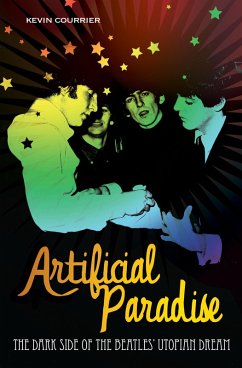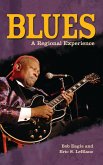There is an epigram in this book from the Phil Ochs song, "Crucifixion", about the Kennedy assassination, that states: I fear to contemplate that beneath the greatest love, lies a hurricane of hate. On February 11th 1963, the Beatles recorded "There's a Place", a dazzling, unheralded tune which was included on their electrifying debut album, Please Please Me. This song firmly laid the foundation on which a huge utopian dream of the sixties would be built. Within that dream, however, also lay the seeds of a darker vision that would emerge out of the very counterculture that the Beatles and their music helped create. Thus, even as their music attracted adoring fans, it also enticed the murderous ambitions of Charles Manson; and though the Beatles may have inspired others to form bands, their own failed hopes ultimately led to their breakup.
The disillusionment with the sixties, and the hopes associated with the group, would many years later culminate in the assassination of John Lennon and the attempted slaying of George Harrison by deranged and obsessive fans. In this incisive examination, author Kevin Courrier (Dangerous Kitchen: the Subversive World of Zappa, Randy Newman's American Dreams) examines how the Fab Four, through their astonishing music and comically rebellious personalities, created the promise of an inclusive culture built on the principles of pleasure and fulfillment. By taking us through their richly inventive catalogue, Courrier illustrates how the Beatles' startling impact on popular culture built a bond with audiences that was so strong, people today continue to either cling nostalgically to it, or struggle - and often struggle violently - to escape its influence.
Hinweis: Dieser Artikel kann nur an eine deutsche Lieferadresse ausgeliefert werden.
The disillusionment with the sixties, and the hopes associated with the group, would many years later culminate in the assassination of John Lennon and the attempted slaying of George Harrison by deranged and obsessive fans. In this incisive examination, author Kevin Courrier (Dangerous Kitchen: the Subversive World of Zappa, Randy Newman's American Dreams) examines how the Fab Four, through their astonishing music and comically rebellious personalities, created the promise of an inclusive culture built on the principles of pleasure and fulfillment. By taking us through their richly inventive catalogue, Courrier illustrates how the Beatles' startling impact on popular culture built a bond with audiences that was so strong, people today continue to either cling nostalgically to it, or struggle - and often struggle violently - to escape its influence.
Hinweis: Dieser Artikel kann nur an eine deutsche Lieferadresse ausgeliefert werden.









